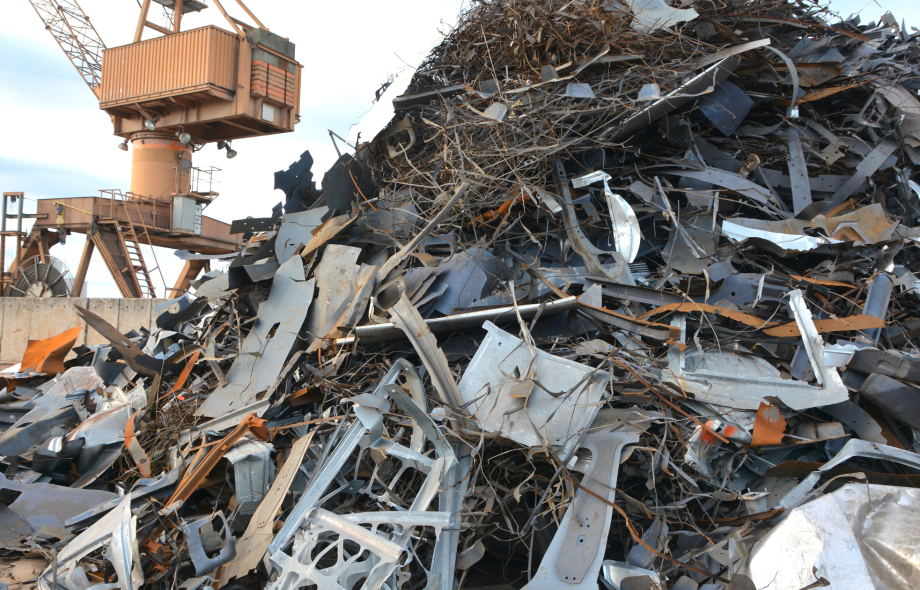As with many other countries worldwide, the recycling industry is crucial for environmental protection and economic growth in India. As a leading recycling company in India, CMR Green Technologies Ltd. plays a significant role in promoting sustainable practices and contributing to a cleaner environment. This article will explore what types of metal are recycled, what they are turned into, and the environmental and economic benefits of metal recycling in India.
What is Metal Recycling?
Metal recycling is the process of collecting and processing scrap metal into new usable products. Scrap metal comes from a variety of sources, including:
- End-of-life vehicles
- Construction and demolition debris
- Manufacturing waste
- Consumer products
Benefits of Metal Recycling
There are many benefits to metal recycling, both environmental and economic. Environmental benefits include:
- Reduced greenhouse gas emissions: Metal production from virgin materials is very energy-intensive. Recycling metal requires much less energy, which helps to reduce greenhouse gas emissions that contribute to climate change.
- Conserved natural resources: The Earth has a finite amount of metal ores. Recycling metal helps to conserve these valuable resources for future generations.
- Reduced water pollution: Mining and processing virgin metal ores can pollute water sources. Recycling metal helps to reduce water pollution.
Economic benefits of metal recycling include:
- Job creation: The metal recycling industry employs millions of people around the world. In India, there are many recycling companies, such as CMR Green Technologies Ltd., that create jobs in the collection, processing, and sale of recycled metal.
- Reduced costs for businesses: Recycled metal is often cheaper than virgin metal for businesses to purchase. This can help to reduce the cost of manufacturing products.
- Increased export earnings: India is a major exporter of recycled metal. This helps to generate foreign currency for the country.
What Types of Metal Can Be Recycled?
Many different types of metal can be recycled. Some of the most commonly recycled metals include:
- Steel: Steel is the most recycled material in the world. It is used in a wide variety of products, including cars, buildings, and appliances.
- Aluminum: Aluminum is another widely recycled metal. It is used in beverage cans, foil, and building materials.
- Copper: Copper is a valuable metal that is used in electrical wiring, plumbing, and air conditioning systems.
- Brass: Brass is an alloy of copper and zinc. It is used in a variety of products, including doorknobs, plumbing fixtures, and musical instruments.
- Lead: Lead is a toxic metal that is being recycled less and less due to environmental concerns. However, it can still be recycled into safe products, such as weights for balancing tires.
What Products Are Made from Recycled Metal?
Recycled metal can be used to make a wide variety of new products. Some examples include:
- New cars: The bodies of many new cars are made from recycled steel.
- Beverage cans: Most aluminum beverage cans are made from recycled aluminum.
- Building materials: Recycled steel and aluminum can be used to make roofing, siding, and other building materials.
- Appliances: Many appliances, such as refrigerators and washing machines, contain recycled metal.
- Construction materials: Recycled steel is used in the rebar to reinforce concrete.
Famous Scrap Metal Quote
A scrap metal recycling company in the United States, “One ton of recycled steel saves 2,500 pounds of iron ore, 1,400 pounds of coal, and 400 pounds of limestone.” This quote highlights the significant amount of raw materials that can be conserved by recycling metal.
The Future of Metal Recycling in India
The metal recycling industry in India is expected to grow in the coming years. This is due to many factors, including:
- Increasing government support for recycling: The Indian government is increasingly recognizing the importance of recycling for environmental and economic reasons. The government is implementing policies that encourage metal recycling, such as providing subsidies to recycling companies.
- Growing demand for recycled metal: The demand for recycled metal is growing globally. This is due to factors such as rising environmental concerns and the increasing use of recycled materials in manufacturing.
- Technological advancements: Advances in technology are making metal recycling more efficient and cost-effective. This is helping to make recycled metal more competitive with virgin metal.
Conclusion
Metal recycling is an essential part of the circular economy. It helps to conserve natural resources, reduce greenhouse gas emissions, and create jobs. The metal recycling industry in India is well-positioned to grow in the coming years. By recycling metal, we can help to create a more sustainable future for ourselves and for generations to come.
 :
https://in.pinterest.com/cmrgreentechnologies/
:
https://in.pinterest.com/cmrgreentechnologies/












